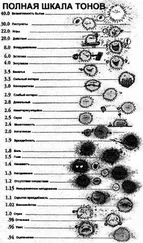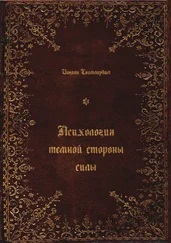Fiske, A. P., & Tetlock, P E. ‘Taboo trade-offs: reactions to transactions that transgress the spheres ofjustice’. Political Psychology, 18 (2) (1997), pp. 255-97.
Tetlock, P E., Kristel, O. V., Elson, S. B., Green, M. C., & Lerner, J. S. ‘The psychology of the unthinkable: taboo trade-offs, forbidden base rates, and heretical counterfactuals’. Journal of Personality and Social Psychology, 78 (5) (2000), p. 853.
Tetlock, P E. ‘Thinking the unthinkable: sacred values and taboo cognitions’. Trends in Cognitive Sciences, 7 (7) (2003), pp. 320-24.
Judicial College. Guidelines for the Assessment of General Damages in Personal Injury Cases. Oxford: OUP, 2017. В эту сумму не входит компенсация за потерю заработка, стоимость соответствующего медицинского обслуживания и прочие расходы.
Kahneman, D., Schkade, D., & Sunstein, C. ‘Shared outrage and erratic awards: the psychology of punitive damages’. Journal of Risk and Uncertainty, 16 (1) (1998), pp. 49-86.
Bales, K. Ending Slavery: How We Free Today’s Slaves. Berkeley: University of California Press, 2007.
Bales, K. ‘How to combat modern slavery’. TED Talk, February 2010; https://www.ted.com/talks/kevin_bales_how_to_combat_modern_slavery.
Baumeister, R. F. Evil: Inside Human Cruelty and Violence. New York: W. H. Freeman, 1997.
Lucas, T., Zhdanova, L., & Alexander, S. ‘Procedural and distributive justice beliefs for self and others’. Journal of Individual Differences, 32 (1), (2011).
Lucas, T., Zhdanova, L., Wendorf, C. A., & Alexander, S. ‘Procedural and distributive justice beliefs for self and others: multilevel associations with life satisfaction and self-rated health’. Journal of Happiness Studies, 14 (4) (2013), pp. 1325-41.
Lerner, M. J., & Simmons, C. H. ‘Observer’s reaction to the “innocent victim”: compassion or rejection?’ Journal of Personality and Social Psychology, 4 (2) (1966), p. 203.
Hafer, C. L., & Sutton, R. ‘Belief in a just world’. In: Handbook of Social Justice Theory and Research. Clara Sabbagh & Manfred Schmitt (eds). New York: Springer, 2016, pp. 145-60.
Furnham, A., & Gunter, B. ‘Just world beliefs and attitudes towards the poor’. British Journal of Social Psychology, 23 (3) (1984), pp. 265-69.
Stromwall, L. A., Alfredsson, H., & Landstrom, S. ‘Rape victim and perpetrator blame and the Just World hypothesis: the influence of victim gender and age’. Journal of Sexual Aggression, 19 (2) (2013), pp. 207-17.
Walters, J. ‘Martin Shkreli: entrepreneur defends decision’. The Guardian, 22 September 2017; https://www.theguardian.com/business/2015/sep/21/entrepreneur-defends-raise-price-daraprim-drug.
‘Public Enemy’. Harper’s, September 2017; https://harpers.org/archive/2017/09/public-enemy/.
Речь идет об альбоме «Once Upon A Time in Shaolin». По словам продюсера группы, договоренность была достигнута до того, как стало известно о деятельности бизнесмена. В 2018 году суд постановил конфисковать альбом у Шкрели. — Прим. ред.
Mangan, D. ‘Martin Shkreli slaps down rapper’. CNBC, 28 January 2016; https://www.cnbc.com/2016/01/28/martin-shkreli-slaps-down-rapper-ghostface-killah-in-vulgar-video.html.
Keshner, A. ‘Pharma Bro’s just a Lie-vy League alum’. New York Daily News, 19 July 2017; http://www.nydailynews.com/news/crime/columbia-registrar-no-records-shkreli-enrollment-article-1.3339005.
Rushe, D., & Glenza, J. ‘Martin Shkreli jailed’. The Guardian, 9 March 2018; https://www.theguardian.com/us-news/2018/mar/09/martin-shkreli-jail-sentence-how-long-pharma-bro-court-trial.
Umphress, E., & Bingham, J. ‘When employees do bad things for good reasons: examining unethical pro-organizational behaviors’. Organization Science, 22 (3) (2011), pp. 621-40; https://doi.org/abs/10.1287/orsc.1100.0559.
Palazzo, G., Krings, F., & Hoffrage, U. ‘Ethical blindness’. Journal of Business Ethics, 109 (3) (2012), pp. 323-38.
Elphick, C., Minhas, R., & Shaw, J. ‘Dark figures’. Unpublished, Open Science Framework (2017); https://osf.io/7skxh.
Garber, M. ‘“First They Came”: the poem of the protests’. The Atlantic, 29 January 2017; https://www.theatlantic.com/entertainment/archive/2017/01/first-they-came-poem-history/514895/.
Niemöller, M. ‘First they came for the Socialists’, version used at the United States Holocaust Memorial Museum; https://www.ushmm.org/wlc/en/article.php?ModuleId=10007392.
Connolly, K. ‘Joseph Goebbels’ 105-year-old secretary’. The Guardian, 15 August 2016; https://www.theguardian.com/world/2016/aug/15/brunhilde-pomsel-nazi-joseph-goebbels-propaganda-machine.
Под «окончательным решением» подразумевалось массовое уничтожение еврейского населения Европы. — Прим. ред.
Милгрэм С. Подчинение авторитету: Научный взгляд на власть и мораль. — М.: Альпина нон-фикшн, 2016.
Milgram, S. ‘The perils of obedience’. Harper’s, 12 (6) (1973).
Milgram, S. ‘Behavioral study of obedience’. Journal of Abnormal and Social Psychology, 67 (4) (1963), p. 371.
Burger, J. M. ‘Replicating Milgram: would people still obey today?’ American Psychologist, 64 (1) (2009), p. 1; and Dolinski, D., Grzyb, T., Folwarczny, M., Grzybala, P., . . . & Trojanowski, J. ‘Would you deliver an electric shock in 2015? Obedience in the experimental paradigm developed by Stanley Milgram in the 50 years following the original studies’. Social Psychological and Personality Science, 8 (8) (2017), pp. 927-33.
Caspar, E. A., Christensen, J. F., Cleeremans, A., & Haggard, P ‘Coercion changes the sense of agency in the human brain’. Current Biology, 26 (5) (2016), pp. 585-92.
‘Following orders makes us feel less responsible’. UCL News, 18 February 2016; http://www.ucl.ac.uk/news/news-articles/0216/180216-following-orders-reduces-responsibility.
McMahon, S., & Farmer, G. L. ‘An updated measure for assessing subtle rape myths’. Social Work Research, 35 (2) (2011), pp. 71-81.
Horvath, M. A., Hegarty, P., Tyler, S., & Mansfield, S. ‘“Lights on at the end of the party”: are lads’ mags mainstreaming dangerous sexism?’ British Journal of Psychology, 103 (4) (2012), pp. 454-71.
Hegarty, P., Stewart, A. L., Blockmans, I. G., & Horvath, M. A. ‘The influence of magazines on men: normalizing and challenging young men’s prejudice with “lads” mags’. Psychology of Men & Masculinity, 19 (1) (2018) pp. 131-44.
Читать дальше
Конец ознакомительного отрывка
Купить книгу












